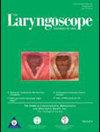Follow-up Trends in Patients Undergoing Modified Wendler Glottoplasty
Abstract
Objectives
After modified Wendler glottoplasty (mWG), close follow-up with laryngologist and speech-language pathologist (SLP) is thought to be essential to achieve best outcomes. This study presents a case series of patients undergoing mWG at a single institution to identify factors associated with trends in post-operative follow-up.
Methods
Retrospective review of trans women patients who underwent mWG between March 2018 and July 2023 was performed. Demographic data, pre-operative care, and post-operative course were reviewed. Lost to follow-up (LTFU) was defined as a failure to return to the office or schedule a follow-up appointment as recommended, for ≥2 months after last visit. Logistic regressions were utilized to identify possible factors associated with being LTFU.
Results
Eight (50%) of 16 patients met LTFU criteria. Patients were considered not LTFU if they completed care (n = 3, 19%) or were still undergoing care (n = 5, 31%). Patients with chronic diseases were less likely to become LTFU (p = 0.03). Those lost to follow-up had more no-show visits (p = 0.04). Total number of gender-affirming surgeries, distance from hospital, socioeconomic status of residential zip code, race/ethnicity, other psychological history, and patient-reported outcome measure scores did not affect LTFU rates.
Conclusion
Fifty percent of patients were LTFU after modified Wendler glottoplasty. Even one no-show visit increased risk of being LTFU, whereas the presence of chronic diseases was protective against this. This study illustrates that increased efforts are needed following mWG to better understand the factors associated with being LTFU and to facilitate patients' ability to complete post-operative care successfully.
Level of Evidence
4 Laryngoscope, 135:1431–1437, 2025

 求助内容:
求助内容: 应助结果提醒方式:
应助结果提醒方式:


